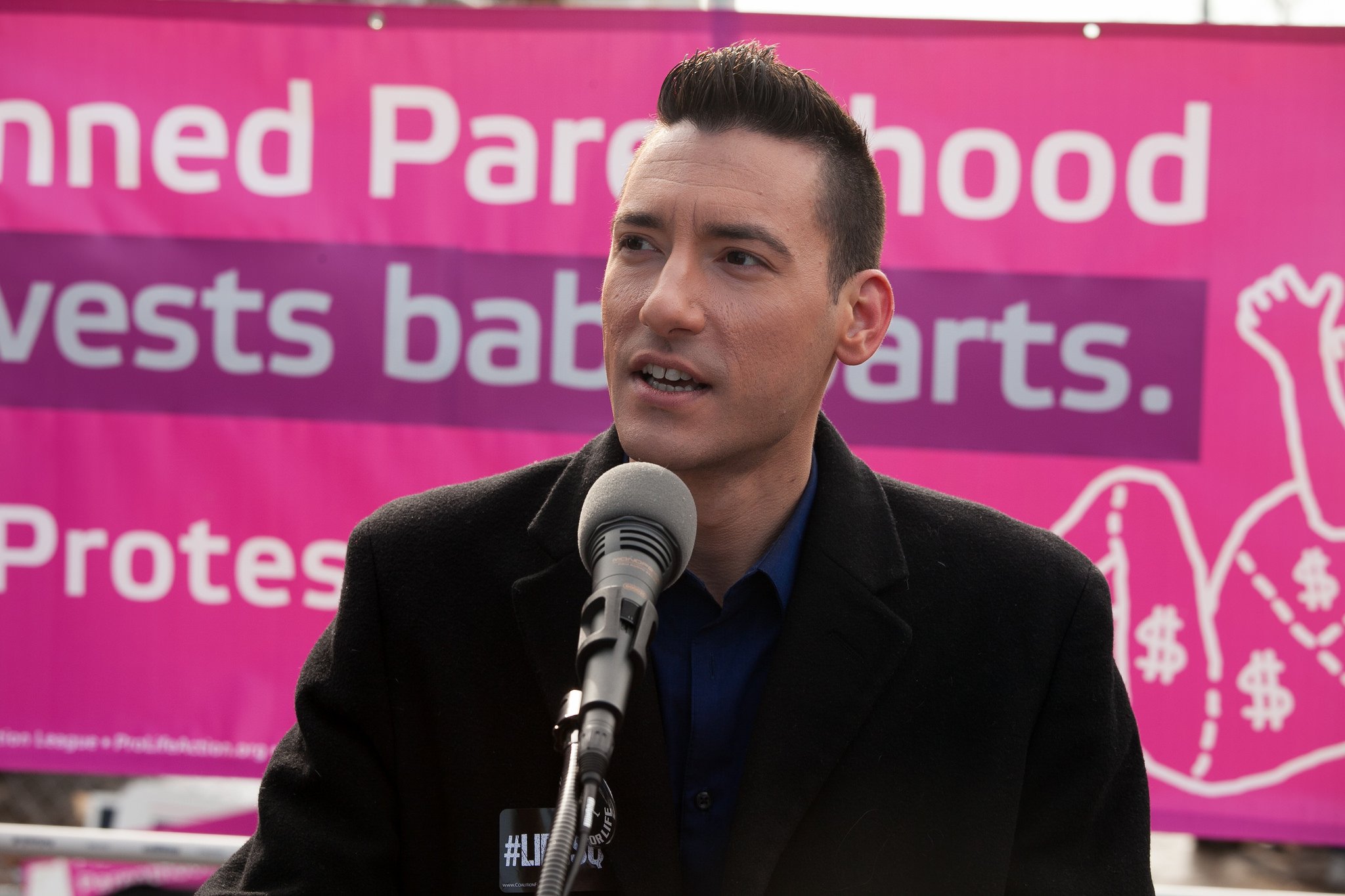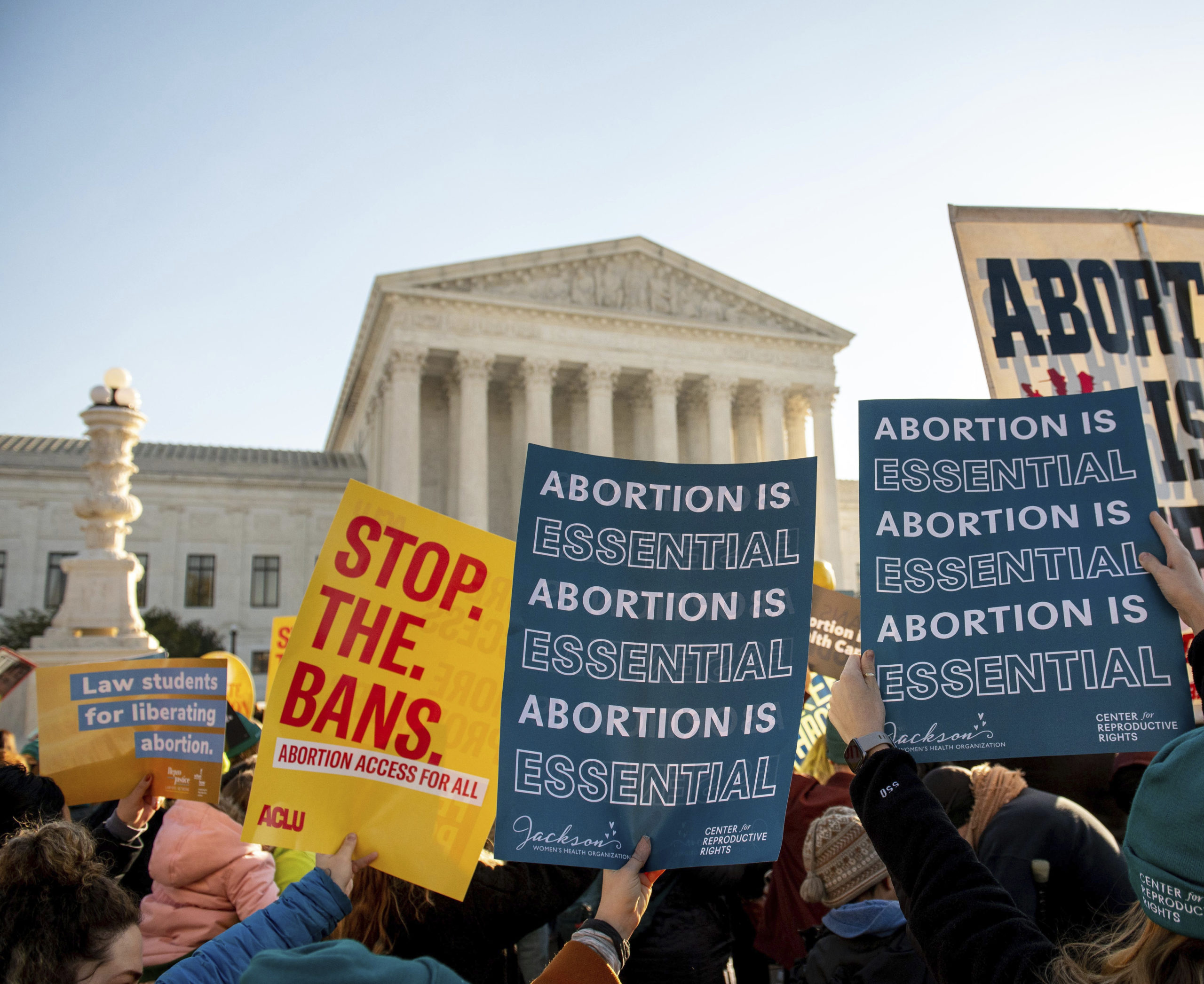
Researchers, Officials Say Nothing Amiss with Fetal Tissue Procurement

Above: David Daleiden, an anti-abortion activist whose group released heavily edited videos purporting to show Planned Parenthood selling fetal tissue, set off a wave of investigations into fetal tissue practices. But Texas officials and medical researchers told lawmakers Thursday that there's no evidence anything is amiss with fetal tissue procurement in the state.
At a legislative hearing Thursday, officials told lawmakers that medical research institutions and abortion clinics are following federal and state guidelines when it comes to fetal tissue protocol, storage and sanitation.
The House State Affairs Committee has been charged with studying fetal tissue practices for medical research after deceptively edited videos by anti-abortion activists set off a firestorm of attacks on Planned Parenthood and, in Texas, three formal investigations. The meeting struck a different tone than last July’s Senate hearing on the same issue, when senators relied almost entirely on the testimony of anti-abortion organizations and activists and no abortion providers or fetal tissue experts were invited to speak.
At Thursday’s hearing, the heads of two Texas medical schools said universities do very little research using fetal remains, but that when they do, they are careful to obey the law.
Ray Greenberg, a medical doctor and the University of Texas System vice chancellor for health affairs, said three of UT’s six medical institutions conduct a “very, very small number” of research projects using fetal remains, most of which are funded by federal grants.
Greenberg said that fetal tissue is critical in studying premature babies and congenital diseases among children. In some cases, he said, studying certain medical conditions would be “impossible” without fetal remains.
“While this research is a small part of our collective scientific enterprise, it is work that would be difficult or impossible to do in other ways,” he said. “And it is typically focused on conditions that have a huge impact on the lives of those affected.”
Since legislators last took up the issue, the anti-abortion activists behind the edited Planned Parenthood videos, which purport to show the organization illegally profiting from fetal tissue donations, were indicted on felony charges for tampering with government documents in Harris County. Planned Parenthood was also cleared of wrongdoing, though two state investigations are still ongoing.
Texas Department of State Health Services (DSHS) officials reminded the committee that the agency, which inspects health care facilities statewide, has limited authority over the transport, sale and donation of that material.
Kathy Perkins, assistant commissioner for regulatory services, also addressed anti-abortion groups’ allegations that abortion clinics are unsanitary and are warned ahead of time of state inspections. All of Texas’ 19 abortion clinics and ambulatory surgical centers are in compliance with state law, she said, and DSHS inspections are “unannounced,” as required by law.
“We saw no evidence that my staff were contacting the [abortion] facility” prior to an inspection, she said.
Anti-abortion groups also insist that the state doesn’t properly fine abortion providers if violations are discovered. Perkins said that the majority of violations are related to infection control, which is typical for all health care facilities the agency inspects, not just abortion facilities. She also said the agency followed up on three complaints about abortion clinics last year, and issued one “administrative penalty.”
Anti-abortion groups were also invited to testify at the 90-minute hearing, alleging that abortion clinics treat fetal remains with “disrespect,” as if they were animal parts, and that clinics store fetal tissue in refrigerators with Chinese food.
Catherine Foster, an attorney with the anti-abortion Charlotte Lozier Institute, which is based in Washington, D.C., said the tissue procurement process is so automatic and impersonal that it “feels like Amazon.com.” She also suggested that abortion facilities and procurement entities handle fetal remains callously, as if they were cutting off a salmon’s head at “a fish market” or selling deli meat in a market.
Profit is abortion providers’ main motivation, she said.
“This is a triple windfall for the abortion clinics — they are paid for the abortion, receive money from the procurement business for minimal, if any, effort, and are then spared paying for the disposal of the aborted babies,” she said.
Federal law prohibits abortion facilities or research entities from profiting off the donation of fetal remains, but does allow reimbursement for basic expenses like transport. UT’s Ray Greenberg testified that state universities spend between $1,500 to $25,000 a year on fetal tissue procurement. Planned Parenthood has said that it has not participated in fetal tissue donation since 2010.
Jennifer Allmon, associate director of the Texas Catholic Conference of Bishops, was called to testify in place of a neurosurgeon who was unable to appear at the hearing after being called into surgery. Allmon said her organization wants the Legislature to “ban fetal tissue research using tissue harvest from induced abortion.”
Committee Chairman Byron Cook, R-Corsicana, asked witnesses about patient consent to tissue donation and said he was struck by university officials’ testimony that medical institutions do so little research with fetal remains.
“It causes me to wonder if maybe we shouldn’t be looking at the utilization of tissue from miscarriages as opposed to tissue from elective abortion,” said Cook. “We do have to give a lot of thought to informed consent … and make sure we have something that everyone is comfortable with.”
Greenberg said he would support legislation that would allow research entities to review abortion clinics’ and procurement entities’ consent forms and said that UT’s internal consent forms meet national standards.


